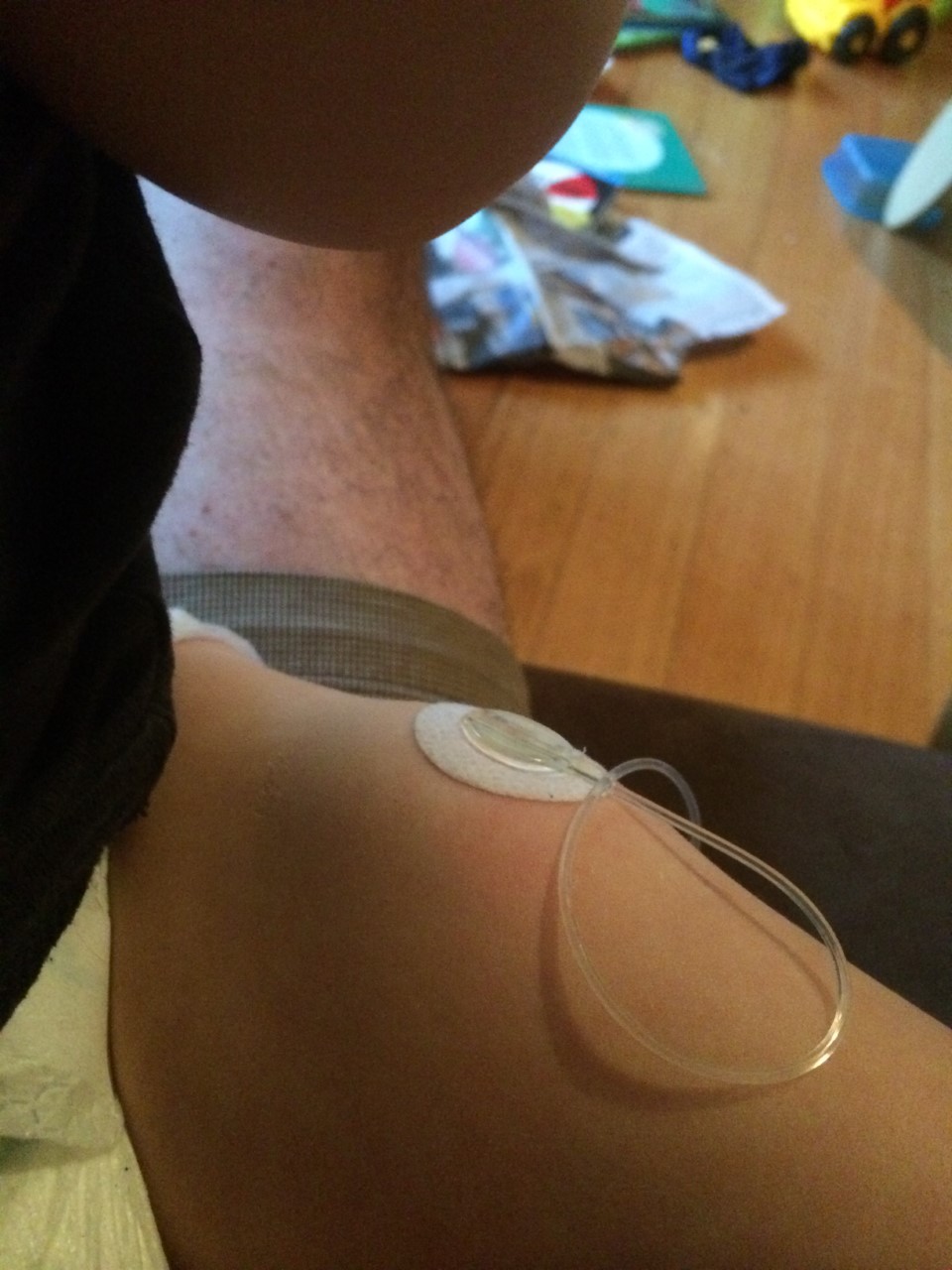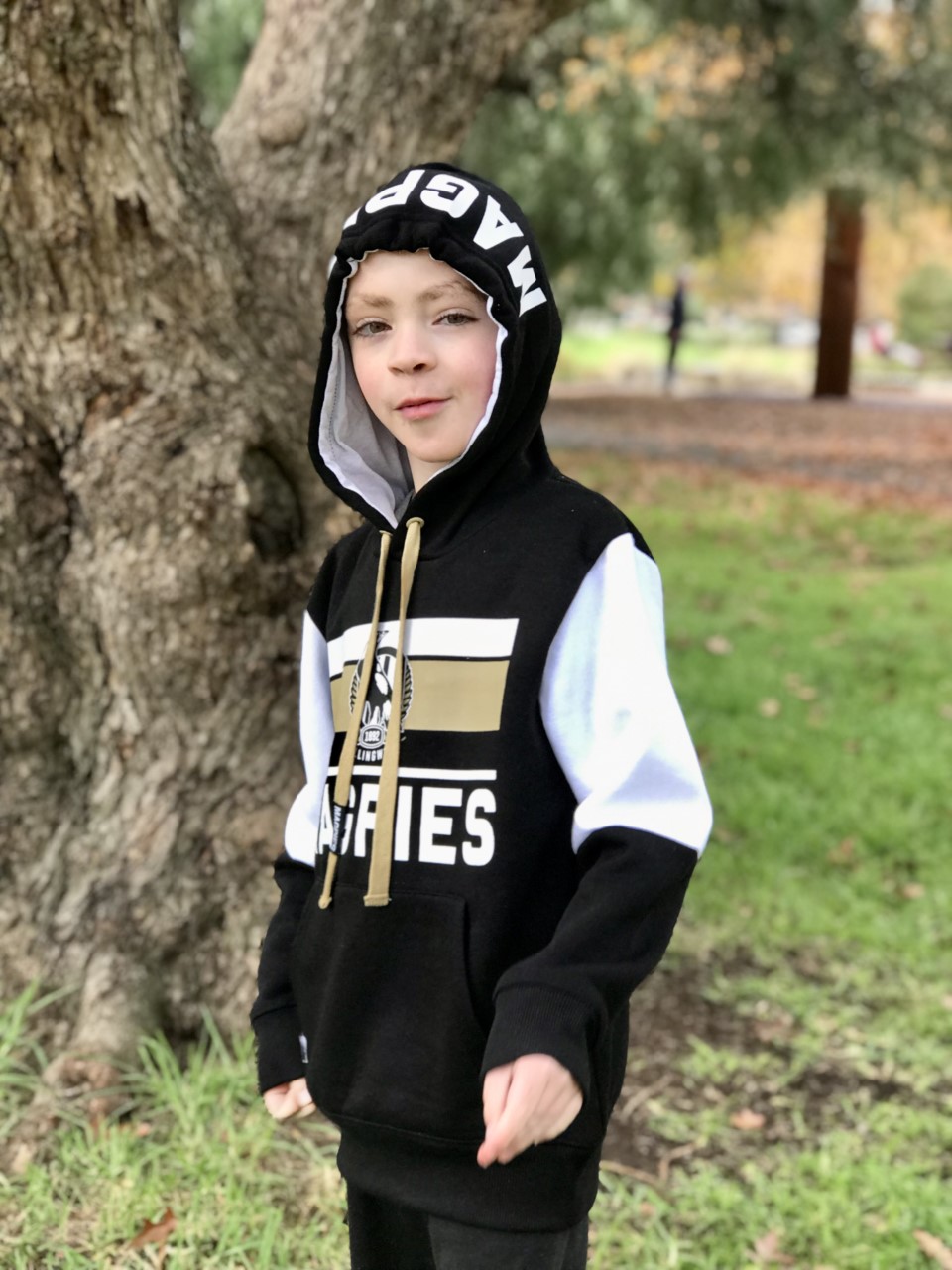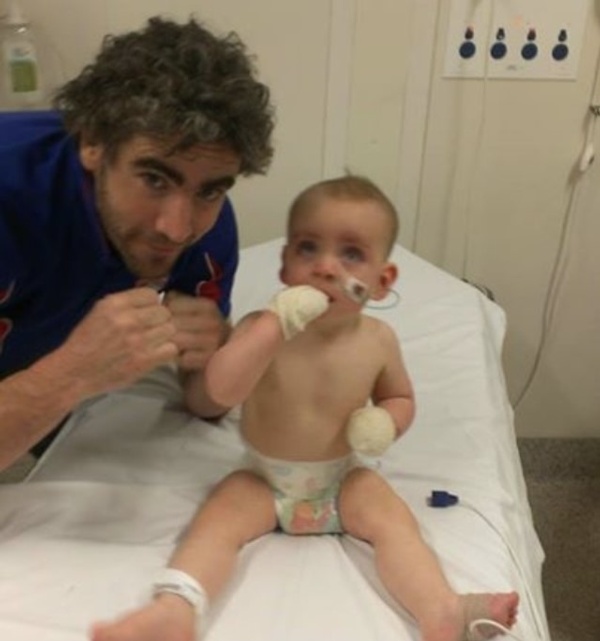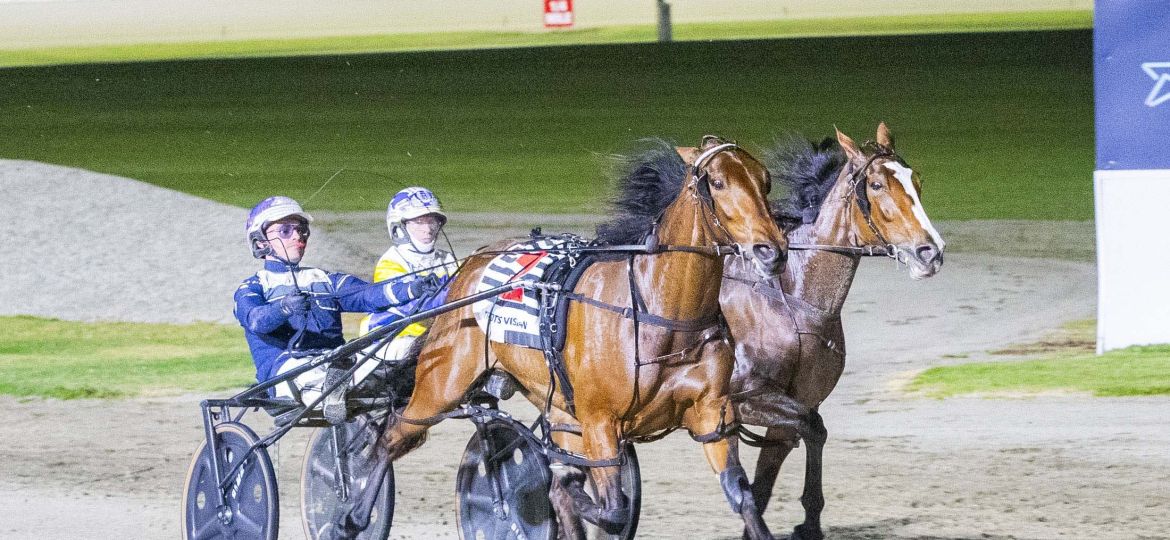.jpg)
McKinnon and Tim O’Connor will deliver SENTrack’s TrotsLife show live from the Stawell Harness Racing Club on Good Friday before getting behind the camera to host the afternoon’s TrotsVision coverage at Laidlaw Park.
The day will be all about the Good Friday Appeal and McKinnon hopes his story will help inspire you all to donate to the cause.
You can do so via the HRV industry-wide campaign page.
Oliver is an 11-year-old boy that has spent his life in and out of The Royal Children’s Hospital.
In particular, the first 18 months he had multiple admissions that meant he would have spent approximately 100 days at the hospital in that period. Since that time, the majority of trips are just for appointments and check-ups.
Oliver has a rare condition called Kabuki Syndrome. It can affect every organ and process of the human body. His main issue is a compromised immune system which requires weekly immunoglobulin infusions – in laymans terms, we inject an immune system into him each week. He has a multitude of other minor issues including with his hearing and eyesight, low muscle tone that affects his walking and swallowing, intestines and bowel which contribute to weight issues and a cleft palette. He has joint laxity, which means he wears orthotics on his legs to help his ankles support his weight and he can’t push a button because his fingers will just bend back. He is mentally retarded and autistic, which means he is sensitive to touch some textures and literally scared of some colours.
How would Oliver be without the Royal Children’s? Well quite simply I believe he wouldn’t be here now without them.

He did have something, though. He was a fighter.
Oliver was admitted to the hospital to have a huge range of tests done. It was like he could have about 100 conditions and each test could rule some out until only one was left. Most results were straight back while others had to go overseas, and by week’s end we were sent home with a handful of possibilities left – all were severe conditions that had life expectancy in the months not years. Three long months passed and finally all results were in, and it was none of those conditions. It’s a strange sensation… you want to know what’s wrong with your child, but you don’t want to know it’s one of those conditions.
We were back to the drawing board. Each week every doctor, every specialist all meet in the one room. Complex, undiagnosed cases are then presented to all, for any ideas that someone else may have. Oliver was presented and several more tests ordered to rule a few more possibilities out. It wasn’t those.
At a last resort we met with a geneticist. Oliver has a rare phenomenon where he was born with holes in his ears like they were pierced for earrings, called barbie pits. The geneticist recalled reading something at university about a syndrome where kids are commonly born with barbie pits, called Kabuki Syndrome. Tests were ordered and at 18 months Oliver was finally diagnosed.
In those first 18 months before his immune therapy started he would naturally get extremely unwell every time he got sick. It would literally take a couple of hours for him to go from a normal little baby to being in the hospital fighting for his life. This is common in Kabuki kids, so once diagnosed Oliver had tests run by the immunology team and they found he was badly immunocompromised.
He was started immediately on immunoglobulin therapy, which is literally the antibodies from thousands of blood donations that are infused into his body through his thigh muscle. The hospital trained his mother and I up to be able to do these at home.
From his first admission, the hospital got Oliver started on speech therapy, occupational therapy and physiotherapy. These early interventions mean he can talk, walk and do simple tasks a normal child would take for granted. Without the hospital kick-starting those early therapies, Oliver would not have developed and grown into the boy he is now.

What I can’t explain though are all the one percenters. The meer cat display, the secret lift for immunocompromised kids, the VIP flag so we didn’t have to be assessed by triage, the family rooms for parents, the computer room for parents, the respite carers that come to give parents a break, the movie theatre.
Oliver today is a happy, loving child. He attends Vermont Special School and loves reading and his two sisters Eloise and Grace. He has many more challenges ahead of him, but the knowledge that The Royal Children’s Hospital is there, with the best people, best facilities and the best structures and processes, means he has every chance to live the fullness of whatever time he has with us.






